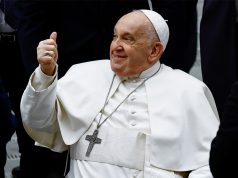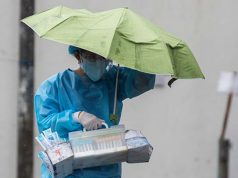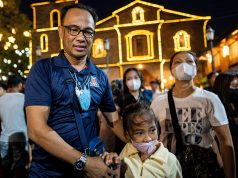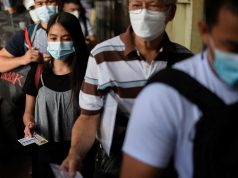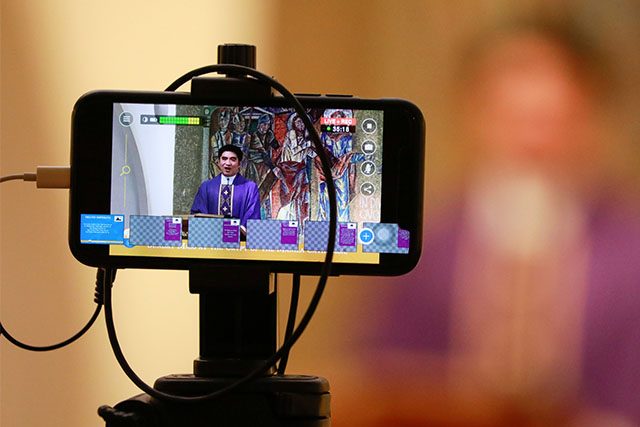
The ban on mass gatherings in light of the novel coronavirus outbreak has prompted religious sectors to seek alternative means of worship that does not involve public contact.
For the Catholic Church, bishops have set up online live streaming of Eucharistic masses on social media and video-streaming platforms so that the faithful can still celebrate and worship the divine liturgy.
Recently, bishops in Metro Manila have extended the suspension on public gatherings until April 14 from the previously declared March 12.
This means “no celebrations of the Holy Mass with a large congregation within this period, plus other religious activities during the Holy Week which usually attract huge crowds of the faithful.”
JUST IN: Metro Manila Bishops declare to extend the suspension of public celebrations of Holy Mass until April 14. Holy…
Posted by The Manila Cathedral on Sunday, March 15, 2020
There are some churches that continue to celebrate mass but have imposed measures to prevent the spread of COVID-19.
The Borongan Cathedral in Eastern Samar managed to distance its parishioners by placing yellow tapes on the pews so that only two to three persons can sit on each row.
Islamic religious activities have also been prohibited from March 15 to April 14 following the memo released by the National Commission on Muslim Filipinos, Bureau of External Relations.
Activities include the jumaat and congregation prayers, the ijtima or johoor of Tagbligh followers, mass Islamic seminars and the madrasah and toril classes.
Individuals are still allowed to pray in mosques and prayer rooms provided they practice “stringent social distancing of at least one [1] meter from each other.”
While the Catholic and Islamic sects have prepared contactless measures to its worshippers, not all religious sectors have implemented such initiatives.
Reports of a religious sect continuing to hold public gatherings despite the government ban has surfaced on social media.
“Just came from church (Iglesia Ni Cristo) and they said that if ever we’re sick, we should get anointed with ‘holy oil’ (pahid ng langis). That’s how you put the lives of your believers at risk lmaoo,” a Twitter user said.
“QC declares state of calamity, bans mass and worship services’ and someone commented, ‘Iglesia Ni Cristo must be stopped being Pride at this moment.’ Non-INC will never understand our FAITH. We rather die in vain than neglect our church duties and worship services,” wrote another online user.
A memo from the Iglesia ni Cristo obtained by Interaksyon indicated that it will continue to hold public gatherings but urged its followers to strictly adhere to the health department’s guidelines on COVID-19.
The memo also told its members that worshippers who experience symptoms or ailments should be anointed by oil so that they could supposedly heal.
“Patuloy rin naming ipinapaalala ang ibinibilin sa Banal na Kasulatan na kung sakali mang dapuan ng karamdaman ang sinuman ay magpapahid ng langis para sa kaniyang ikagagaling,” part of the memo reads.
INC’s central office is situated in Quezon City, which is set to strictly prohibit mass gatherings after Mayor Joy Belmonte has declared a state of calamity amid the COVID-19 outbreak.
The QC government is also imposing a nine-hour “public safety hours” when “all persons within the territorial jurisdiction of Quezon City are prohibited to roam around, loiter, wander, stay or meander in all public places, whether singly or in groups.”
The Department of Interior and Local Government also urged the local governments and the Philippine National Police to “strictly prohibit” gatherings including religious activities and worship services.
Maintain social distance
The government has banned all mass gatherings following the previous declaration of President Rodrigo Duterte to place Metro Manila under a community quarantine in a bid to contain and prevent the spread of COVID-19.
All activities involving Holy Week celebrations are affected but baptisms, weddings and confirmations may still push through under strict restrictions.
Social distancing is also recommended by experts to prevent the spread of the deadly pathogen since it is a highly communicable disease.
The United States’ Centers for Disease Control and Prevention defines it as “remaining out of congregate settings, avoiding mass gatherings, and maintaining distance” whenever possible.
In South Korea, a secretive religious cult was blamed for triggering the outbreak of the virus in the country.
Reuters reported on March 7 that more than half of South Korea’s total number of positive cases were “linked” to members of Shincheonji Church.








